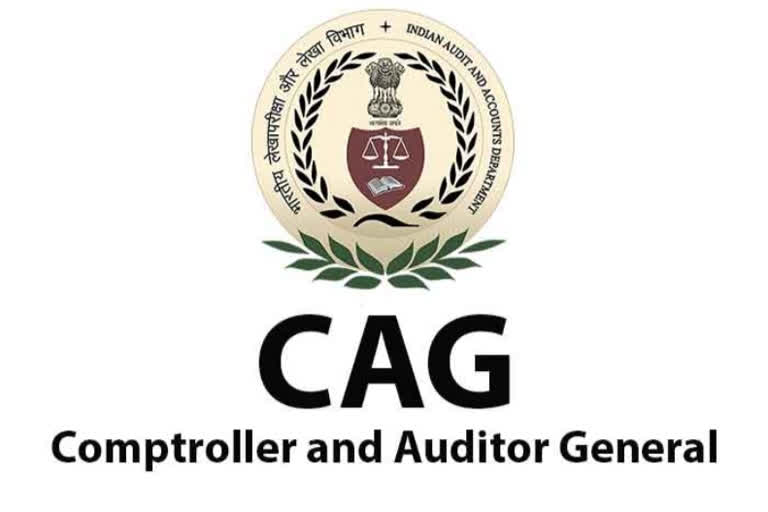New Delhi: The Comptroller and Auditor General of India, in its audit report tabled on Monday, highlighted several lapses in the procurement and supply chain of drugs under the Central Government Health Scheme (CGHS), which led to a shortage of drugs at wellness centres. The CAG report also highlighted violations in connection with reimbursement of claims made by health care organisations (HCOs).
The audit noted that the health ministry did not ensure a periodic revision of the drug formulary, which is maintained by the Medical Stores Organisation (MSO) for the CGHS and government hospitals. The drug formulary of June 2015 was revised only in February 2022, it said. "The non-revision of the drug formulary during the period June 2015 to February 2022 meant that the procurement process in CGHS did not take into account the newer drugs prescribed by doctors," the report said. The drug formulary helps to focus on commonly prescribed drugs and formulation, so that the maximum numbers of diseases are reasonably covered and availability of drugs can be ensured.
The MSO did not finalise the procurement rates of all drugs listed in the drug formulary, the CAG said, underlining that of the 2,030 drugs listed in the formulary, it had finalised the rate contracts for only 220 to 641 from 2016-17 to 2020-21. "As a result, CGHS could not procure the drugs listed in formulary, leading to shortage of drugs in wellness centres," the report said. It further said the CGHS did not place an indent on the government medical store depots (GMSDs) for the complete quantity of drugs approved by the ministry for provisioning. The GMSDs did not supply the indented drugs to the CGHS in a timely manner and the complete quantity as indented. "Due to inefficiencies in procurement and supply of drugs, there were persistent shortages of drugs in wellness centres. Against the annual requirement of 1,169 drugs in CGHS, there were only six to 290 drugs available in wellness centres," it said.
The report noted that due to the shortage of drugs at the wellness centres, a huge amount of drugs was procured through authorised local chemists (ALCs). In Delhi, 74.7 to 93.61 per cent of the expenditure was incurred on procurement of drugs through ALCs from 2016-17 to 2020-21. "Deficiencies in the supply chain of drugs in CGHS led to non-availability of generic drugs in wellness centres, resulting in placing of indents by wellness centres on ALCs for branded drugs at higher rates," the report said. The audit noted that ALCs all over the country did not supply the prescribed brand of drug as indented by the wellness centres and instead, supplied drugs manufactured by different companies in violation of the conditions of the contract.
Also, there were delays, short supplies and excess supplies of drugs by the ALCs to the wellness centres. There were also cases of expired drugs and drugs having a short shelf life being supplied by the ALCs to the wellness centres. An analysis of the data dump provided by the CGHS relating to prescription, procurement, storage, supply of medicines and reimbursement of medical claims of HCOs revealed several inaccurate and erroneous entries. It also highlighted several inefficiencies in the processing, approval and finalisation of claims submitted by HCOs.
The CGHS released Rs 70 crore to the Bill Clearing Agency (BCA) in June 2010 for making provisional payments to HCOs towards the reimbursement of medical claims. The provisional payment to the HCOs was discontinued in October 2015. However, an amount of Rs 38.7 crore was still lying with the BCA as on March 31, 2021. In 264 cases, the CGHS paid Rs 39.32 lakh in excess to HCOs for reasons such as inadmissible Covid room charge, medicines or lab charges included in the package for a particular procedure as prescribed by the CGHS, the report mentioned.
According to the agreement executed with the HCOs, for serving employees (other than CGHS, DGHS, Ministry of Health and Family Welfare), the payment would be made by the patient for treatment or procedures or services to the HCOs and he or she would claim reimbursement from his or her office, subject to the approved rates as prescribed by the CGHS. "In violation of this arrangement, CGHS approved and made payments to HCOs for 1,848 claims amounting to Rs 23.7 lakh pertaining to serving employees.
Data for claims approved for the 2016-2021 period revealed that the delay in processing the claims by the CGHS to authorise the final approval ranged from one month to 60 months. In August 2013, 45,154 bills amounting to Rs 34.91 crore were lost due to fire at the BCA premises in New Delhi. However, no decision was taken by the CGHS to settle these claims even after eight years, though an amount of Rs 17.03 crore for 13,777 claims was released by the BCA to the HCOs concerned, the report stated. Claims amounting to Rs 4.86 crore, which were forwarded by the BCA to the CGHS for approval, were lost or became untraceable since May 2014. (PTI)



